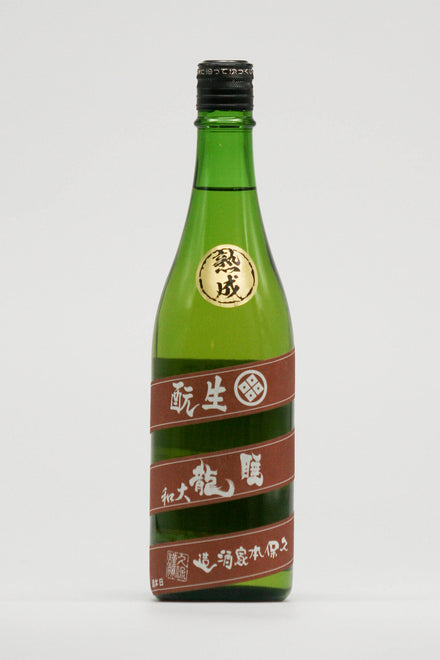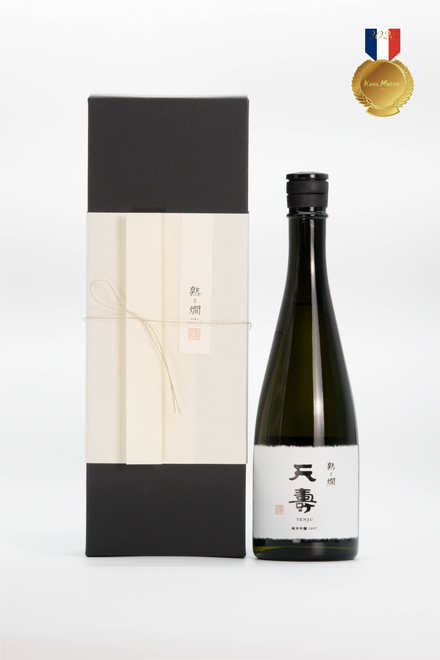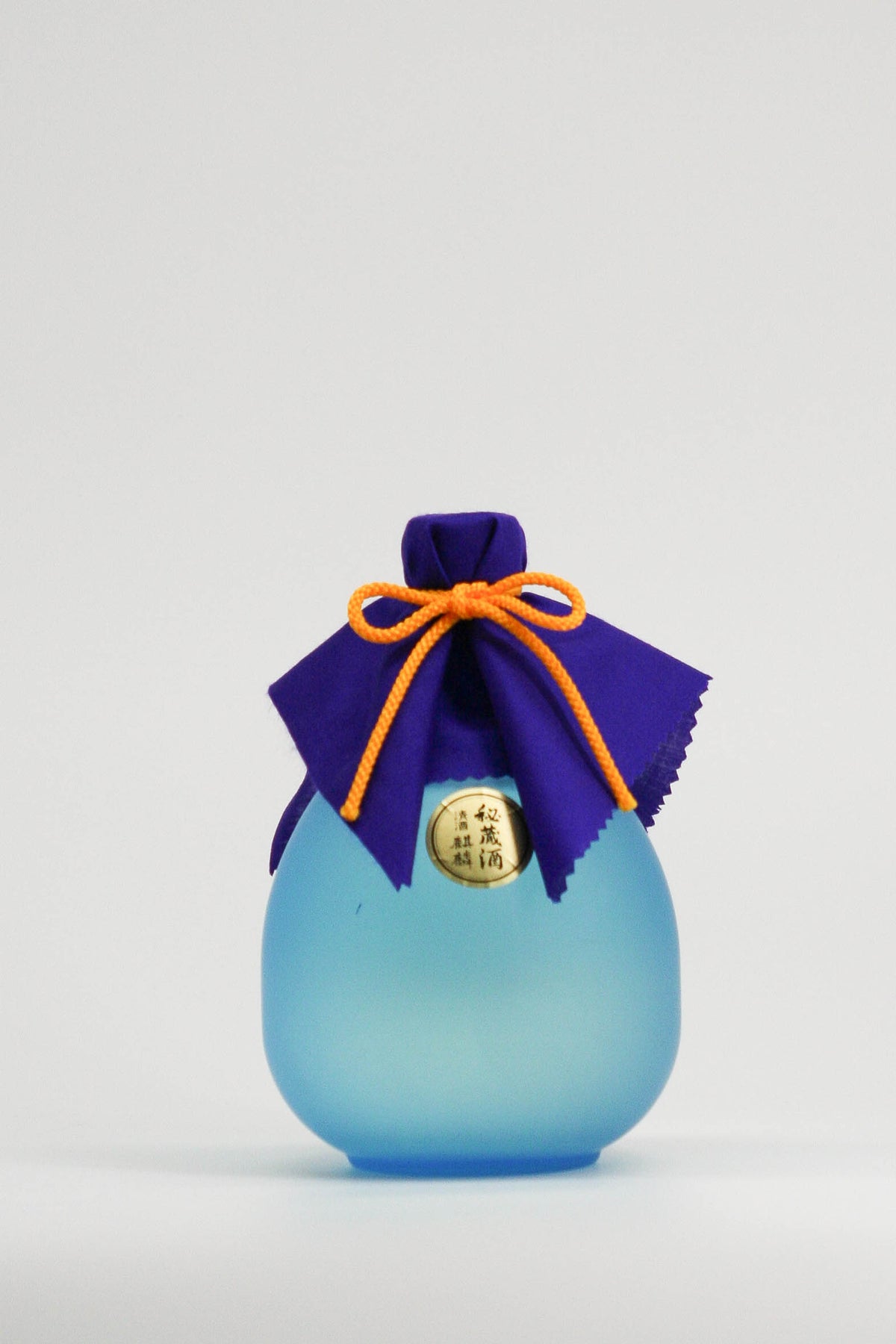
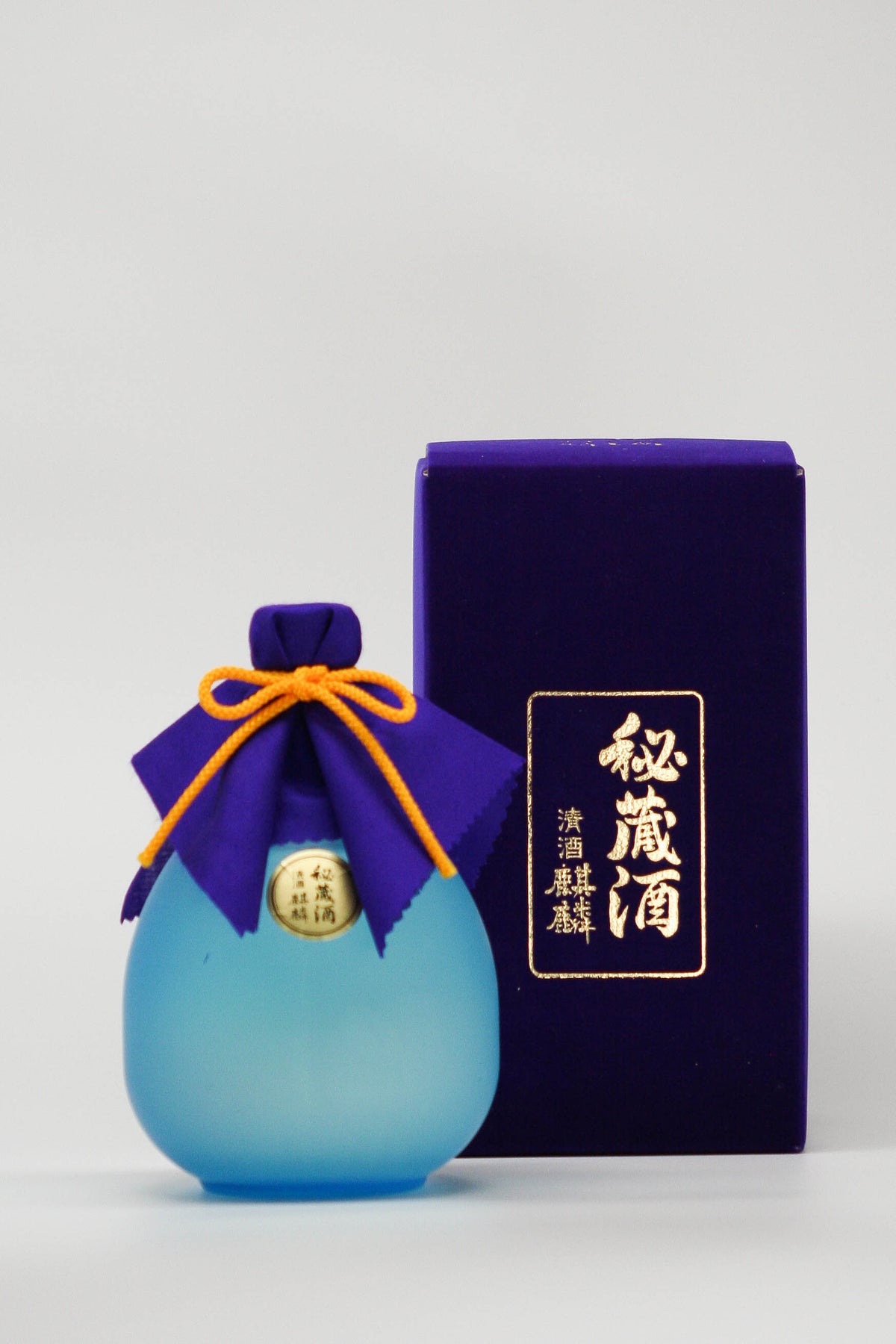
This sake is an assemblage (blending) of Daiginjo sake that has been aged at low temperatures for over five years.
Kirin Hizoshu
| Vintage | - |
| Years aged | 5 years or more |
- 5,000 - 9,999 yen
- All Products
- As aperitif and/or with starters
- Light Yellow/Green
- Non-vintage
- Throughout the meal
- 5-9 years
- Brewer:Kaetsu Sake Brewery
- Alcohol:17.2 %
- Volume:750ml
Couldn't load pickup availability
[ Drinking alcohol under the age of 20 is prohibited by law. ]
This sake is a blend of stored sake that has been aged at low temperatures for over 5 years to maintain the harmony of the flavors of Kirin Daiginjo Yamada Nishiki, which is specified by the Kanpyōkai.
The origin of the term ``hizosake'' comes from the meaning of secretly storing sake, and the fact that at the time there were warehouses where sake that had been stored at low temperatures for three years or more was called ``hizosake.''
Enjoy with delicacies, hard cheeses, dried fruits, etc.
- about
-
Type Daiginjo Rice polishing ratio 35% Yeast type No. 9, 1801 series Ingredients/raw materials Rice, rice malt, brewed alcohol Rice type Yamada Nishiki Origin of rice Hyogo prefecture Toji(Brew Master) Etsuo Ino Assemblage 有
- Recommended occasions/temperature
-
- How to store
-
- Delivery dates and charges
-
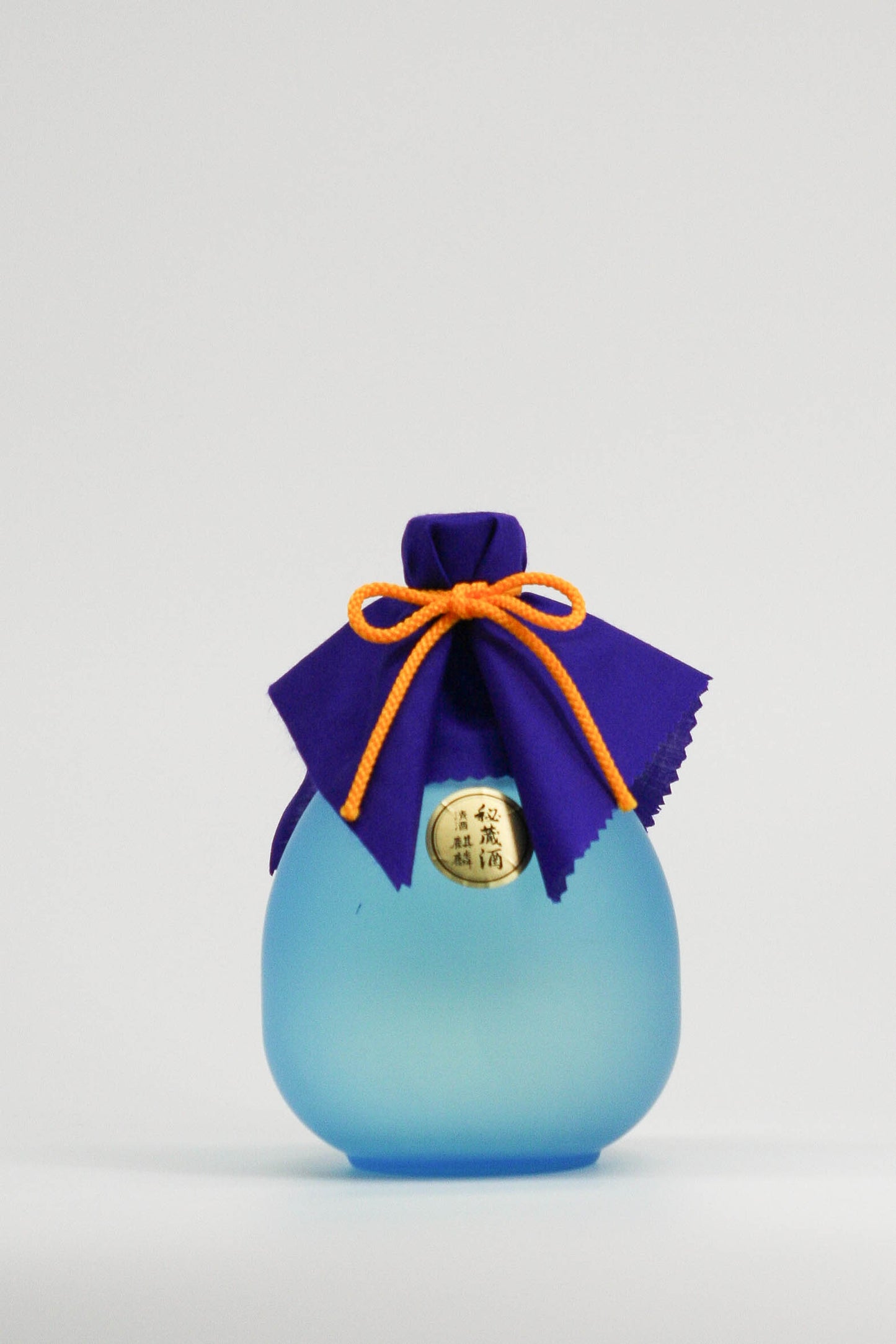
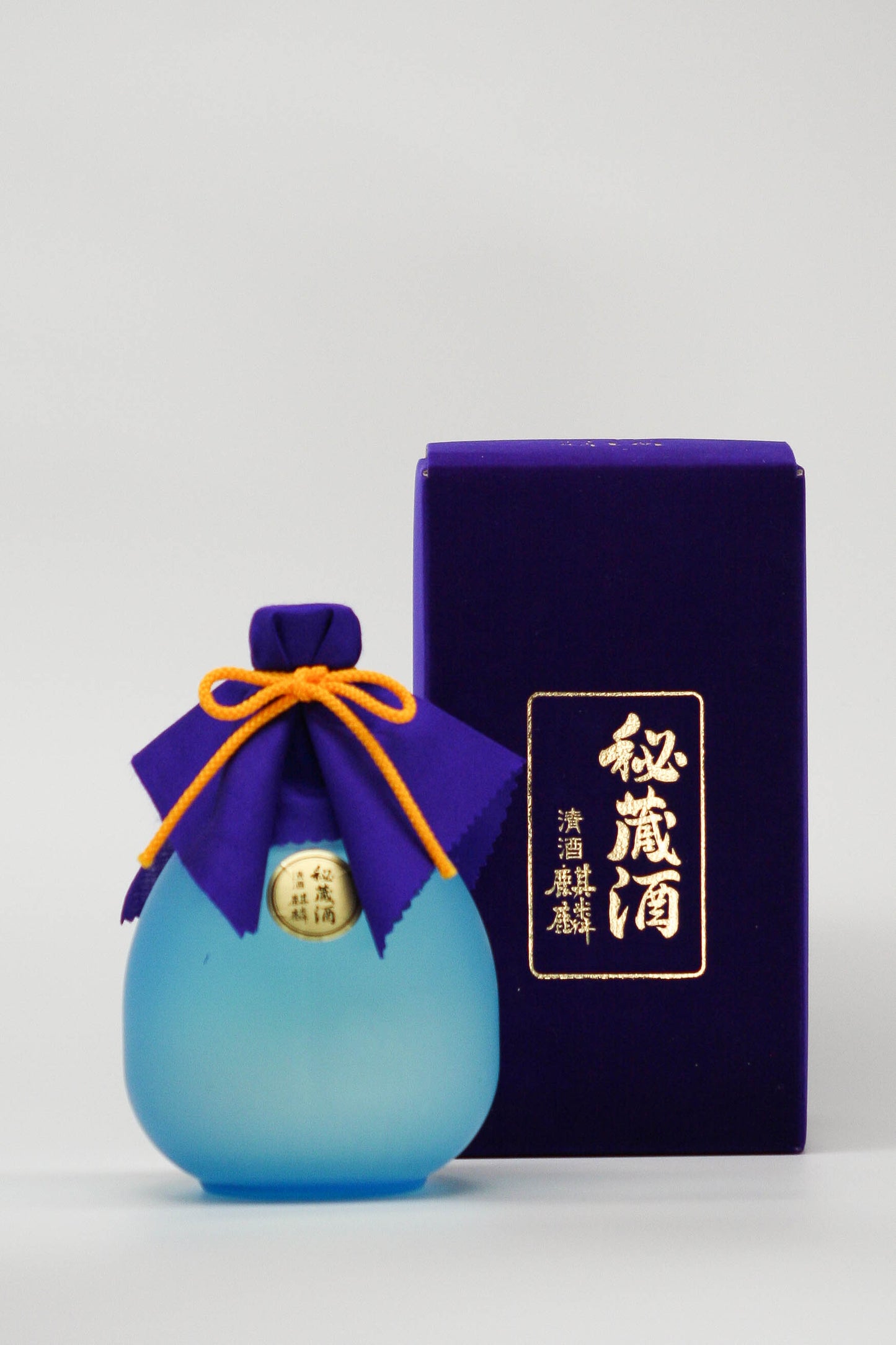
Tasting comments
-
Hidekazu Ishiwata
(Former National Tax Bureau Chief Appraiser)Lightly roasted nutty aroma with hints of ripe apples and pears.
It has an elegant, slightly thick and smooth texture, but its crispness is reminiscent of Niigata sake, making you realize its great potential.
It's not overly assertive, but the balance of richness and flavor is excellent. -
Akiko Toda
(Director of ITTEKI, Japan Sake and Meat Research Institute)The color is gentle, and the aroma is like a sweet mix of carefully simmered and strained strawberry jam and white chocolate with the surface of the cream burnt.
Inside is a pear compote. It is incredibly glossy, with a delightful chocolate couverture-like texture and the impression of stewed fruit.
This drink can be a smooth introduction to the next drink. I like to pair the tuna with sweet chili sauce. Garnish with strawberries. -
Yuji Yamauchi
(Yushima Tenjinshita Sushi Hatsu 4th generation / 1st JSA SAKE DIPLOMA competition winner)It has a beautiful ginjo aroma despite being aged, with a hint of sulfur in the background.
It flows smoothly into the mouth, with subtle aromas of flowers, nuts, and herbs intertwining in a complex way. The sweetness briefly expands, but then fades away with a pleasant bitterness at the end. The balance of this aftertaste is excellent. It's sweet and pleasant, so it's a drink you'll want to enjoy on its own, rather than with food.
Brewer


Kaetsu Sake Brewery
Founded in 1880 in this area (Fukushima Prefecture), which flourished as an important river port connecting Aizu and Echigo. Moved to Niigata Prefecture in 1898. The shop name is ``Kanbaraya,'' and the house seal is ``〇: Boichi.'' During the war, the business was suspended due to corporate restructuring, but in April 1944, it restarted as Kaetsu Sake Brewery Co., Ltd. through a corporate merger. Leveraging the experience of the late chairman and the current president, both of whom have served as alcoholic beverage appraisers for the National Tax Bureau, we are committed to quality-oriented sake brewing without compromise.
At Kaetsu Sake Brewery, we have been putting effort into making Ginjo sake since the time of the late chairman, and the quality of the remaining sake exhibited has improved beyond our expectations by refrigerating it. Sales began in 2010 and continue to be continued to this day. During this time, I started participating in a long-term aging research group in 1985, and experienced the variety of aged sake produced by different manufacturing and storage methods.Since 2000, I have been selling vintage ``jijoshu'' that can be aged at room temperature. At the same time, we are also planning to resell Kojuku Old, an affordable aged sake blend.

